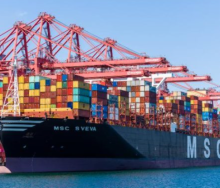Uncertainty caused by the disruptive impact of a fast-spreading pandemic, lay-offs as a result of measures implemented to curb Covid-19, and last July’s rioting across KwaZulu-Natal and Gauteng, has left a skills shortage across business sectors.
Addressing a “Power Hour” hosted by Metro Minds last Thursday, the logistics and supply chain academy’s founder and chief executive, Juliette Fourie, said South Africa was experiencing a brain drain because of recent events.
“People resigned and others were retrenched."
And after the riots, yet more decided to emigrate "because they don't like it here anymore.
“So now, all of a sudden, we have this gap again and companies are asking: ‘How do we integrate upskilling without disrupting the organisation again?’”
She said over the years broad-based economic empowerment (BEE) had placed tremendous strain on companies transforming through adapting their staff complement and skills set.
On top of “compliance fatigue”, costs related to training have turned it into a grudge purchase.
In addition, what Fourie calls “misaligned strategies” – attempts to improve executive, human resource, BEE, operational and financial competencies – have resulted in companies often not having the benefit of consolidated skills upliftment.
All in all, she said, it necessitated a rethink of the whole bang shoot.
“Companies ought to look at their skills strategies and ask themselves: ‘what is the big picture?’
“Is it compliance or is it upskilling? And if it’s both, how do I bring the two together.”
Just ticking boxes to comply so one can move on often results in dissatisfaction over what training is supposed to accomplish.
As for cost, she said “dependencies” often resulted in a reluctance to spend on training, especially in lean times such as is currently the case, where upskilling expenses tend to be relegated down the list of budget expenses.
It should be borne in mind though that South Africa’s transport sector was one of the top performers in last year’s GDP statistics, growing 9% or 2-3% more than the previous year.
Investing in human capital to bolster business growth should not be held back by “misaligned strategies, compliance fatigue, and dependencies”, Fourie said.
When companies fail to cultivate their people, it’s the workforce that usually suffers the most, affecting the entire organisation.
* This is the second report from last week’s Power Hour. Read what Fourie had to say about the individual context of employees in the workplace (https://tinyurl.com/4ybk8txa).













